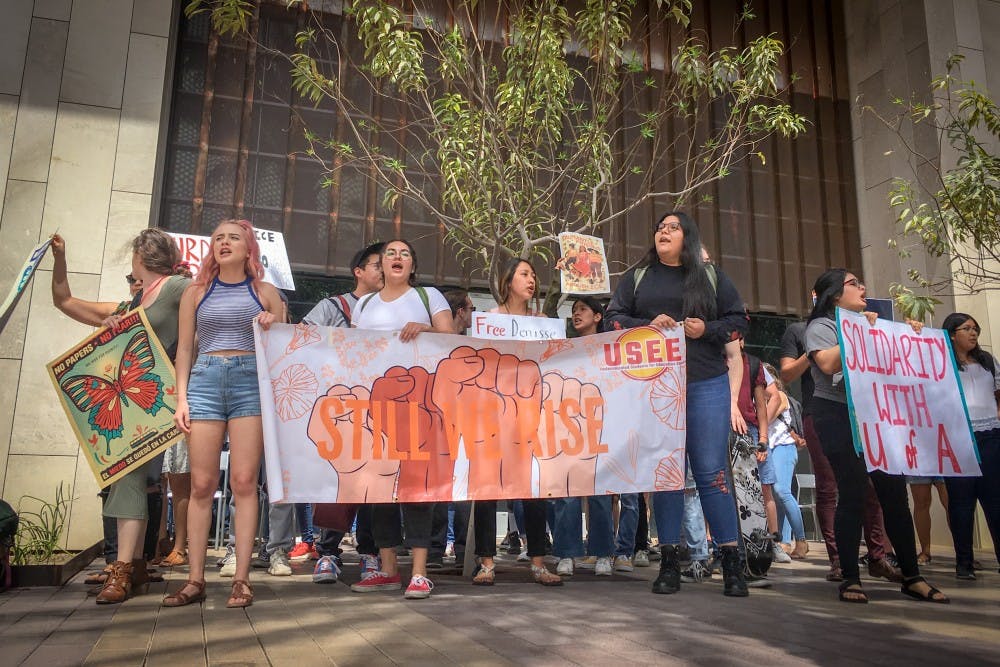Believe it or not, ASU is not an apolitical campus. Its history is embedded in political movements that date back to the 1960s — from issues centered around ending mandatory military ROTC training to an FBI investigation of a communist professor.
Activism is an essential part of ASU's history, and there should be more of it if the community wants to see concrete change. As the ASU community settles into this semester, what should be considered by students, faculty and workers is their political involvement.
"ASU really isn’t disconnected in the way that we think it is," said Madison West, an ASU alumna and one of the protestors during the Border Patrol demonstration in April. "There are so many problems in the greater Phoenix area that impact students at ASU and vice versa."
Read more: A brief history of ASU's political landscape
In early 2019, as one of the people who protested the presence of the Border Patrol on campus, I was happy to see dozens of students participating in this demonstration. It was one of the largest and loudest I had seen so far, having rallied for other issues on campus before.
ASU needs more protests like this — with more people actively engaging in issues they are passionate about.
What is accomplished in activism runs deep, and because it does not rely on the cycles of elections, activism can happen at any time. It is a way to fight for issues at the grassroots level. More importantly, activism gets communities thinking in terms of collective struggle — meaning it empowers crowds, not individuals, by uniting people of all backgrounds in a cohesive movement.
"There are definitely problems that impact ASU specifically, such as tuition, but we have to realize that they’re part of a bigger system of oppression that isn’t just limited to ASU," West said.
Problems which lie just outside of the academic sphere are also ASU issues, and the community shouldn't disconnect from everything outside of that same sphere.
"It’s critically important for students, faculty and the ASU community to protest things that impact not just the ASU community, but the community at large," said West.
Earlier this year, a 14-year-old boy named Antonio Arce was shot and killed by Tempe police, there was a huge outcry, including from ASU students.
This occurred right next to the ASU campus, and it energized hundreds of people — igniting a series of protests that would revolve around Arce and police brutality for the next three months. Protests that started to see more students and student club involvement.
The officer involved in the shooting ended up resigning from the Tempe Police Department.
Not only do students need to continue to build their political consciousness through activism but so should the entirety of the ASU community.
Faculty and the workers of ASU should be a part of this mobilization to build a better community, composed of thousands, united to radically change the world in whatever way they can. Being in the streets with each other and fighting together is how we can achieve change.
Reach the columnist at amisais@asu.edu or follow @comradealexia on Twitter.
Editor’s note: The opinions presented in this column are the author’s and do not imply any endorsement from The State Press or its editors.
Want to join the conversation? Send an email to opiniondesk.statepress@gmail.com. Keep letters under 500 words and be sure to include your university affiliation. Anonymity will not be granted.
Like The State Press on Facebook and follow @statepress on Twitter.




